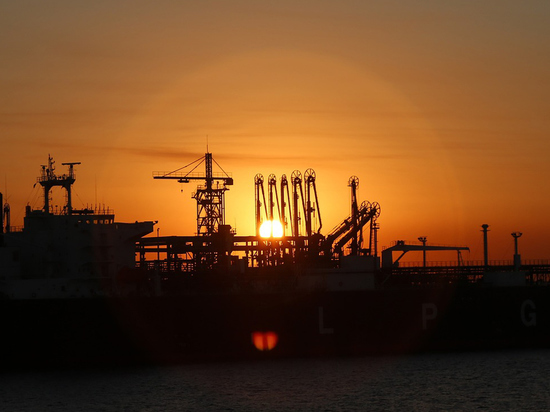Moscow has learned how to effectively bypass Western restrictions
Sanctions restricting the export of Russian oil do not prevent domestic producers from increasing the supply of raw materials to foreign buyers. As industry experts calculated, the volume of “black gold” and finished fuel transported by sea increased this spring to the highest level since 2020. Moreover, international experts attribute the growth in cargo transportation to the “shadow” tanker fleet of our country, formed to circumvent Western sanctions.

Since the beginning of April, the volume of crude oil transported by tankers by sea has risen to its highest level in three years. According to the international company Vortexa, the total transportation of «black gold» on tankers increased to 1.27 billion barrels. In just a few months, the cargo transportation of raw materials has risen by almost 20%. According to Bloomberg analysts, Russia has become the record holder of deliveries, since the transshipment from board to board on the high seas of liquid hydrocarbons from our country has reached its highest levels in several years. Moreover, the increase occurred despite the sanctions imposed by the G7 and the EU, which imposed a ban on the provision of insurance and transport services to domestic commodity operators since December last year. Not only that: the record happened after the decision of the Russian leadership not to provide raw materials to countries that supported the price ceiling for our “black gold”. “Russian oil deliveries by sea are growing. There is no indication that Moscow's threat to cut production is having any impact on the volume available on the international market,” industry commentators at Reuters said.
What explains this paradox: the bans on the sea transportation of Russian oil are being tightened, and their volumes are growing? Experts are sure that despite the statements of European states about the reduction in purchases of domestic «black gold», a significant share of energy resources entering the fuel market of the Old World is still of West Siberian origin. As foreign publications have repeatedly reported, our exporters, including state-owned companies, since the announcement of Western restrictions on the transportation of raw materials, managed to create their own “shadow” fleet of about 600 vessels, which is comparable to 10% of the total world number of large tankers. “Thanks to this maneuver, Russia was able to redirect export deliveries to friendly countries and bypass freight bans,” said Vladimir Chernov, an analyst at Freedom Finance Global. “The risk of encountering bans has been reduced because no international regulators can prevent domestic exporters from pumping raw materials directly into the sea from our tankers to the ships of end buyers.”
Indeed, a serious hole was found in Western restrictive measures: sanctions were imposed on the price and insurance of tankers, but did not prohibit the actual transportation of oil. “Even if the owners of the tanker did not transfer information about the cost of transported raw materials to American or European authorities, any forceful obstacles to their movement on the high seas will be regarded as piracy,” explains Igor Yushkov, an expert at the Financial University under the Government of the Russian Federation. — Formally, the owners of the ships may fall under personal sanctions that impose a ban on operational settlements in European and American financial institutions, which can lead to the arrest of their property. At the same time, an international resolution of an authoritative organization, such as the UN, is required to detain the ships. Without an appropriate document, the deprivation of the ability to move a tanker in independent waters and any actions that interfere with the transshipment of cargo in territories accessible to all will fall into the category of illegal.”
In general, according to experts, Russia has learned not only to circumvent Western restrictions, but even to use them to its own advantage. “Such high volumes of export supplies of hydrocarbons have not been observed for a long time,” states Alexei Belogoriev, deputy director of the Institute of Energy and Finance. There has been a significant increase in the shipment of raw materials not only to China and India, which came out on top in importing energy resources from our producing provinces, but also to Turkey and the countries of North Africa. Domestic exporters are increasing sales of fuel to countries with the shortest transport distance in order to reduce the need for tankers: if the route for delivering «black gold» to Turkey and back takes several days, then deliveries to India take one and a half to two months.
“However, while export diversification pleases, rather, with forecast indicators,” sums up Natalia Milchakova, Leading Analyst at Freedom Finance Global. — According to the Ministry of Finance, in the first quarter, budget oil and gas revenues fell by 45% to 1.6 trillion rubles. It remains to be hoped that by the middle of the year, against the backdrop of rising commodity prices, the situation will change, and additional revenues from the sale of energy resources for export will begin to flow into the treasury.”


